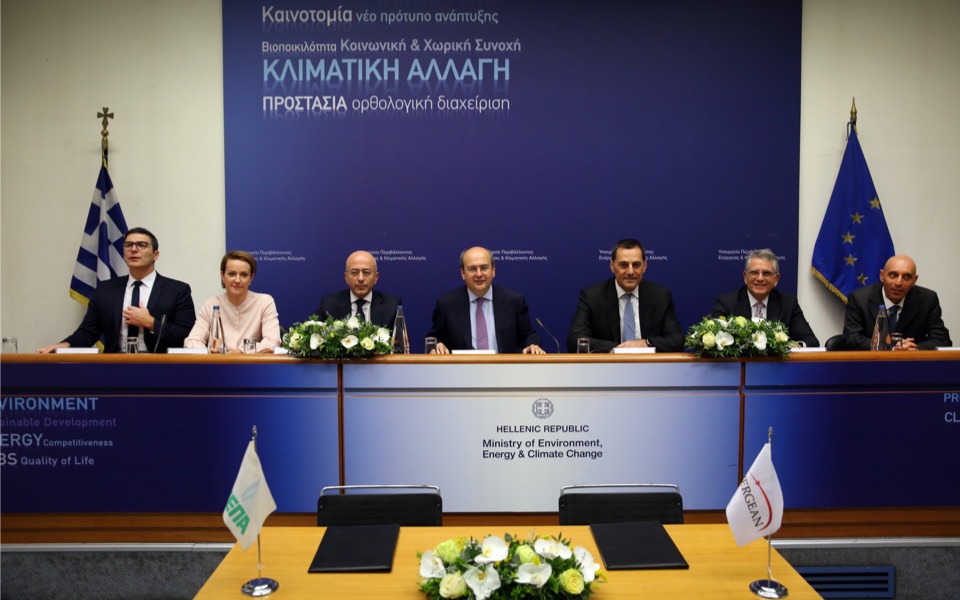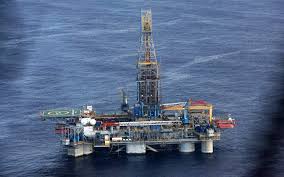EastMed pipeline deal signals continuity, extroversion

The strategic dimension of the EastMed pipeline agreement signed on Thursday in Athens is undisputed and has been stressed by champions and critics of the construction project alike. However, the project also entails two elements that are important to Greece – political continuity and broader business opportunities – and should serve as a paradigm.
Prime Minister Kyriakos Mitsotakis had asked that the official signing ceremony between Greece, Cyprus and Israel also be attended by Energy Minister Kostis Hatzidakis’ predecessors Yiannis Maniatis, Panos Skourletis and Giorgos Stathakis, in recognition of their role in making the project happen.
When Maniatis was minister in 2013 and insisted on the benefits of the project, his arguments had been dismissed as utopian. Now, seven years later – not to mention several ministers and governments later – the EastMed pipeline has received the European Union’s seal of approval – characterized as a Project of Common Interest – and is considered promising.
The pipeline’s construction relies on its commercial viability, and this in turn depends on the discovery of sufficient quantities of natural gas.
In the years that followed its initial conception, however, the project was acknowledged as beneficial by the EU and became eligible for European funding. Successive Greek governments have since promoted the project, including to the Americans by stressing its geopolitical dimension, the fact that it will contribute to diversifying Europe’s gas supply, which currently relies too heavily on Russia.
The prime minister’s decision to invite the former ministers, and their decision to attend, symbolizes – in the most formal possible way – that consistency and continuity, two elements so sorely absent from the workings of the Greek state, have been key parameters in the success of the EastMed pipeline. It was clearly a move in the right direction that will hopefully be followed by other governments in the future on similar occasions.
At the same time, the agreement highlights the important role of a Greek company in developing Israeli gas reserves and also brought to the fore another important dimension that concerns the economy: the need for the Greek business community to expand its scope and extroversion.
The signing of a preliminary cooperation agreement between Greek gas supplier DEPA and Greek-owned firm Energean Oil & Gas for the supply of 2 billion cubic meters of natural gas (representing around 20 percent of the EastMed pipeline’s total capacity), is an important part of the puzzle, because it will be instrumental in ensuring the pipeline’s sustainability when the process reaches the next level with the signing of the final commercial agreement.





